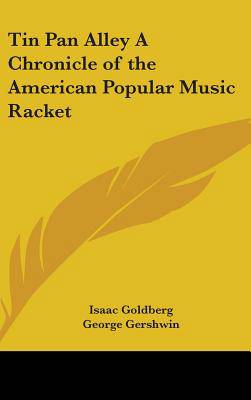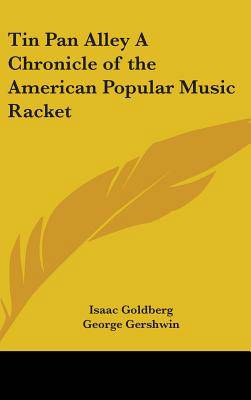
- Retrait gratuit dans votre magasin Club
- 7.000.000 titres dans notre catalogue
- Payer en toute sécurité
- Toujours un magasin près de chez vous
- Retrait gratuit dans votre magasin Club
- 7.000.0000 titres dans notre catalogue
- Payer en toute sécurité
- Toujours un magasin près de chez vous
67,95 €
+ 135 points
Format
Description
Tin Pan Alley: A Chronicle of the American Popular Music Racket is a comprehensive book by Isaac Goldberg that explores the history of the American popular music industry from the late 1800s to the mid-20th century. The book delves into the rise of Tin Pan Alley, a district in New York City where music publishers and songwriters worked to produce hit songs that would be played on pianos across the country. Goldberg discusses the key players in the industry, including songwriters such as Irving Berlin and George Gershwin, as well as the publishers who controlled the industry. He also examines the impact of technological advancements, such as the advent of recorded music and radio, on the industry and how it changed the way music was created and consumed.The book provides a fascinating look into the inner workings of the music industry during this time period, including the business practices and the relationships between publishers, songwriters, and performers. It also explores the social and cultural context in which this music was created, including the impact of World War I and the Great Depression.Tin Pan Alley: A Chronicle of the American Popular Music Racket is a must-read for anyone interested in the history of American music and the evolution of the music industry. It provides a detailed and engaging account of a pivotal period in the development of popular music and the people who shaped it.1930. A graduate of Harvard, Goldberg has been a magazine and newspaper editor and a lecturer on music and belles-lettres. He is addicted to radio, talkies, musical comedies, puns, toys of every description and head-splitting volumes of esthetics. He was rocked to sleep with the melodies of Gilbert and Sullivan and is generally accepted as the outstanding Savoyard authority. Here he applies his expertise to giving the reader a history of the origin and business of Tin Pan Alley.This scarce antiquarian book is a facsimile reprint of the old original and may contain some imperfections such as library marks and notations. Because we believe this work is culturally important, we have made it available as part of our commitment for protecting, preserving, and promoting the world's literature in affordable, high quality, modern editions, that are true to their original work.
Spécifications
Parties prenantes
- Auteur(s) :
- Editeur:
Contenu
- Nombre de pages :
- 376
- Langue:
- Anglais
Caractéristiques
- EAN:
- 9781432616540
- Date de parution :
- 01-03-05
- Format:
- Livre relié
- Format numérique:
- Genaaid
- Dimensions :
- 152 mm x 229 mm
- Poids :
- 721 g

Les avis
Nous publions uniquement les avis qui respectent les conditions requises. Consultez nos conditions pour les avis.






